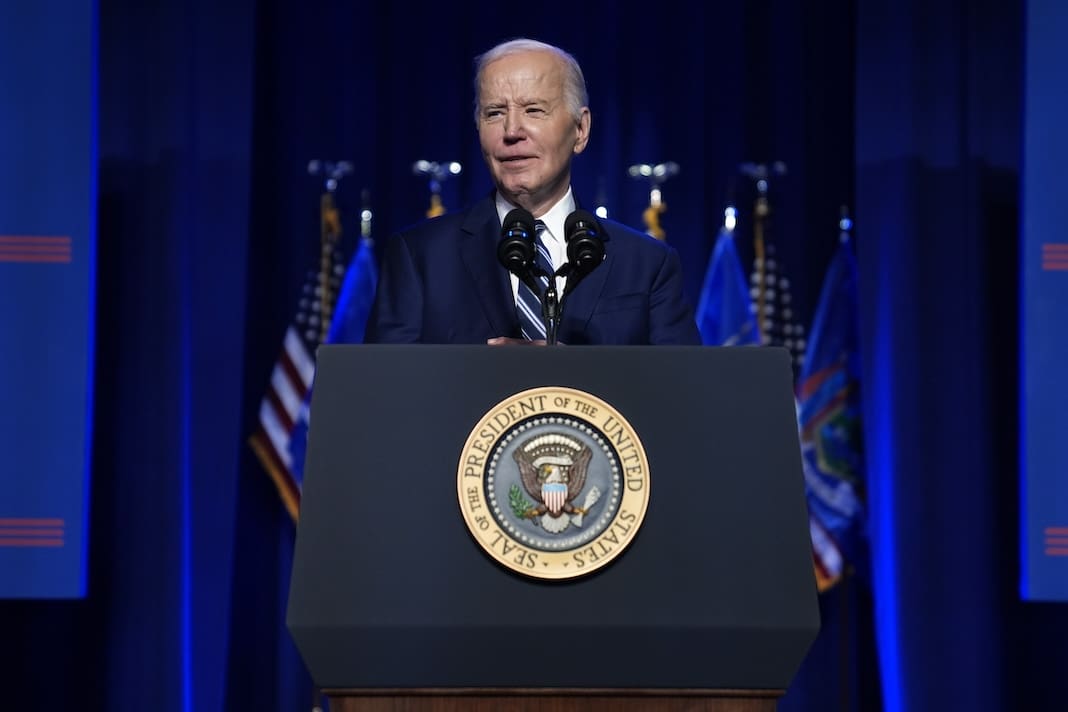The Inflation Reduction Act’s clean energy provisions are already helping Wisconsin
Businesses, workers, and consumers are already seeing benefits from the Biden administration’s climate protection and clean energy investments.

One year after the Inflation Reduction Act became law, businesses, labor unions, and consumers in Wisconsin have all begun to take advantage of clean energy incentives in the legislation.
The bill passed in Congress on a party-line vote, with only Democrats voting for it and unified Republican opposition. President Joe Biden signed the act into law on Aug. 16, 2022.
According to data from the U.S. Congress Joint Economic Committee, incentives in the law encouraging clean and renewable energy have so far spurred $445 million in combined private and public investments in projects in Wisconsin, and those projects are forecast to create 500 jobs. Nationally, the committee found that the law has already generated $278 billion in private investments.
More than $3.1 billion in private clean energy investments in Wisconsin are benefiting from the new law, according to the Biden Administration Investment Tracker at the Center for American Progress. Among those are a solar and battery storage project in south-central Wisconsin to be established by the Milwaukee-based WEC Energy Group; plans by the public utility Alliant Energy to build or purchase solar farms; and a new campus for the multinational company ABB, which will produce devices used to lower energy consumption at the location.
Ryan Koronowski, the director of special research projects for the digital advocacy team at the progressive think tank Center for American Progress, told the American Independent Foundation that the investments and incentives in the law are fueling a clean energy boom in Wisconsin.
“The billions’ worth of investment in the Badger State is just the tip of the spear, as the market responds to the priorities set out in this landmark legislation, manufacturing jobs come to the United States, and Americans can take advantage of the cutting-edge innovation powering the clean tech economy,” Koronowski said.
Tax credits and rebates for weatherization of homes and businesses, energy efficient heat pumps, installation of solar power and the purchase of electric vehicles are all included in the law. These provisions were designed to lower costs and to lower carbon dioxide emissions, a major contributor to climate change.
Kevin Kane is the chief economist at Green Homeowners United, a unionized energy efficiency residential contracting firm based in West Allis, Wisconsin. He told the American Independent Foundation that although many of the law’s incentives for clean energy and efficiency have not yet gone into effect, businesses like his are already seeing benefits.
“We’re excited because some is now, more is later, and we’re preparing with folks for what comes later,” he explained.
“A lot of businesses, like my own, struggle with utility bills, struggle with the cost of doing business,” Kane said. “What’s great about this is, yes, there’s job opportunities that will come out of it, but not just directly through the kind of construction jobs that it’ll create, but through the fact that companies like mine then may not have to pay as much for other things, and we can reinvest that into our firms that can grow even more.”
In addition to expanded tax credits for solar improvements, Kane noted: “There are other tax incentives to businesses, and even more if they hire companies that pay prevailing wage, for things like insulation and air sealing in windows or heating systems and lighting. And so there’s both a direct incentive of lower utility bills and the tax benefit of investing in this for something completely different.”
Prevailing wage rules require that contractors receiving federal funding pay their workers a wage comparable with those paid to other employees in the area.
Kevin Gundlach is president of the South Central Federation of Labor of the AFL-CIO, the umbrella organization for labor unions in south central and southwestern Wisconsin. During an Aug. 16 press conference marking the first anniversary of the law, he said that the Biden administration has been working closely with the labor movement to make sure the law benefits working families and provides “good-paying jobs for Wisconsinites,” which he said was a stark contrast to dealing with Wisconsin’s Republican U.S. senator:
We’re involved in these processes, and I think we are all on the same page in terms of making sure these jobs are the best jobs possible for our workers and their families. It’s such a huge contrast in terms of working with this administration and the Democrats of this state, as opposed to Ron Johnson, who wouldn’t even respond to labor and those who represent workers in this state.
At the same event, Democratic Wisconsin state Rep. Alex Joers said that families in his Middleton-area district are taking advantage of the consumer rebates and credits to reduce their energy costs:
I think that my constituents are particularly really interested and I do want to give a shoutout to our local partners in Dane County and in the city of Madison. And I’ve seen it happening across the state, where they’re helping folks and homeowners take advantage of these incentives and figuring out how they can utilize these very beneficial provisions from the IRA to help weatherize their home, bring down energy costs for them, and just a benefit that we’ve seen already in the advance in programming that has come up in our local economy.
Kane noted that by switching to heat pumps, Wisconsin can avoid the sort of power grid failure that famously hit Texas in February 2021.
“In Wisconsin, we mostly heat with natural gas, so the electric grid, unlike Texas, doesn’t really go crazy, usually, in the winter, but it definitely can in the summer, because a lot of us are using old air conditioners and stuff like that,” he explained. Heat pumps, he predicted, will “be both far better air conditioners, thus reducing the load on the electric grid in the summer, but they’re also going to help us heat with electric and less on natural gas or propane or fuel oil.”
For those living in rural areas, Kane said, this could mean safer and more efficient home heating: “If you live in a really rural area and it’s the dead of winter and you’re running out of propane, you really are wondering, How the heck am I going to heat this house? Because propane has to be delivered, electricity is brought to your home from the power lines.”
Even as the law’s benefits are being seen in their districts, Wisconsin’s Republican members of Congress are pushing to repeal it.
On April 26, the GOP-led House of Representatives passed the Limit, Save, Grow Act by a vote of 217-215. The bill, which did not get a vote in the Senate, would have paired an increase in the debt ceiling with the elimination of virtually all of the Inflation Reduction Act’s clean energy and climate protection funding.
Republican Reps. Scott Fitzgerald, Mike Gallagher, Glenn Grothman, Bryan Steil, Tom Tiffany, and Derrick Van Orden all voted with their party to slash the investments. Democratic Wisconsin Reps. Mark Pocan and Gwen Moore voted against the bill.
“Washington’s out-of-control spending must end,” Steil tweeted on May 16. “The only way to responsibly raise the debt ceiling is to limit the growth of the federal government, save taxpayers money, and grow the economy.”
“Wisconsin’s economy is growing because we are seeing record investment in the renewable energy economy, creating family-supporting jobs, cutting pollution, and taking on the climate crisis.” Democratic Wisconsin Sen. Tammy Baldwin said in an Aug. 16 press release. “I know we have more work to do to lower costs for families, but I am proud that our Inflation Reduction Act is delivering needed relief for working families and growing our Made in Wisconsin economy.”
Published with permission of The American Independent Foundation.




